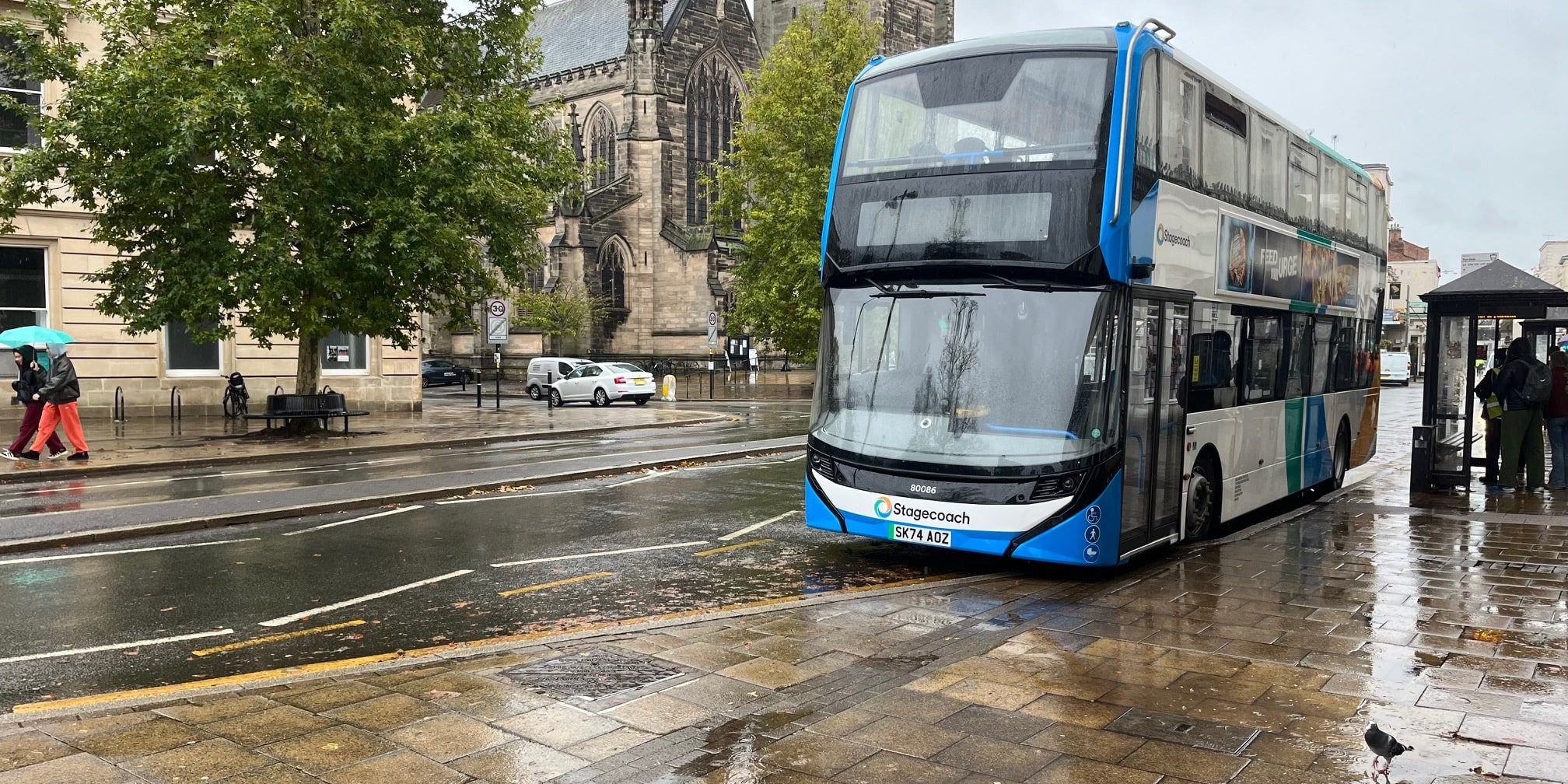A look at Leamington’s buses
The grievance between Warwick students and the bus service is longstanding – it is the dead horse we refuse to stop beating, but how warranted is this issue?
A relatively high percentage of University of Warwick students live in Leamington Spa, and those who do not still commute frequently to the town for social activities, making the bus service a vital lifeline for Warwick students attempting to travel anywhere. The most popular way to get to and from Campus to Leamington is through the U1 and U2 services offered by Stagecoach. There are other services, such as the 11, offered by the National Express that also do the job, albeit taking a little longer.
The experience is comedically uncomfortable. There’s often a mad scramble to make it onto the bus, only for dozens of unlucky people to be left without a seat
Running every 10 minutes, the U1/U2 is theoretically a recipe for success. However, despite the almost excessive frequency, considerable problems remain, such as delays and cancellations that leave people running late. The question must be asked, though, whether this is a structural problem within Stagecoach itself, or perhaps a result of something else. With such a high volume of students relying on the service, it is easily overwhelmed, often ending up full by the time it gets to the Parade and the rest of North Leamington.
The experience is comedically uncomfortable. There’s often a mad scramble to make it onto the bus, only for dozens of unlucky people to be left without a seat. Instead, you have to be packed together tightly with your peers. Many students also report that part of the reason they cannot get to campus on time is that the buses are full when they eventually get to their stop. The reverse is also true, with many scrambling to make it onto the bus to go home, only for them to be full up at the interchange.
The problems with Stagecoach do not end in real life either, with the Stagecoach app, a proclaimed pillar of the bus-riding experience, remaining relatively inaccurate. Reports and complaints about the inaccuracies over when buses arrive, or whether the bus is coming at all, remain commonplace.
The price of the bus is also a serious point of contention and genuine concern. A £3 fare for a single ticket is often deemed extortionate. While there are student passes (costing £52 for 28 days, £170 for a term, or £450 for an academic year) that are relatively cost-efficient, for many, the cost is still too high a price to pay on a student budget. Moreover, considering the unfavourable reputation of the buses, many consider the price not worth it.
Currently, most bus services in the United Kingdom are privately owned, but this was not always the case
Since having or bringing a car to university remains an unfeasible fantasy for many, the bus continues to be the only method of getting to campus. However, alternative forms of travel could still be a solution. One of which is the West Midlands Bus on Demand, where you can book a journey and a bus will come to pick you up. The fare is relative to the duration of the journey. Another could be to bike to campus along the cycle routes, although this could be more difficult given the long duration.
While theoretically sound, these solutions are mostly unused in practice, and so it begs the question: Is the solution a third bus service?
This is an ongoing concern, and there seems to be no resolution in sight. However, could these problems be indicative of a wider issue, considering Stagecoach and public transport in general are generally looked upon with disdain due to their unpredictable and costly nature?
We should be convincing people to use the buses, not deterring them with poor service
Some believe the answer lies in nationalising the bus service. Currently, most bus services in the United Kingdom are privately owned, but this was not always the case. The bus service and its routes should exist for the benefit of the community they serve, rather than for maximising profit. A realistic way of achieving this is through franchising, whereby the buses would be owned by a private company (decided on by a bidding process), but with the local council authority controlling fares, routes, and timetables. The cost of franchising is expensive, but ultimately, for cheaper fares, better working conditions for drivers, and a more community-based approach, it is worth the risk.
In the current climate of increased environmental awareness, local governments ought to be urging their constituents to change their habits regarding transport. We should be convincing people to use the buses, not deterring them with poor service. Ultimately, it is in everyone’s best interest to make public transport as functional as possible.
It may not be perfect, but the U1/U2 bus ride has become akin to a social institution, a rite of passage for the Warwick student to lament over. While it would be appreciated to see some sort of change around the flaws of the bus service, it seems unlikely that we will see any resolution until Stagecoach and other private bus companies change their ways in a fundamental manner.

Comments